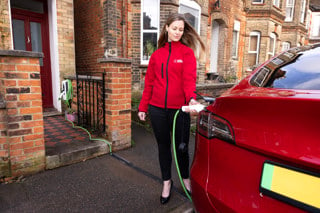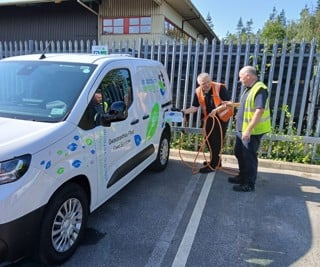Almost nine out of 10 (89%) of cars leased via Arval UK on salary sacrifice are now an electric vehicle (EV), an increase from just four out of 10 (39%) two years ago.
Over the same time period, the total number of cars provided via its Arval Ignition salary sacrifice scheme has risen by 252%, thanks to growth from existing clients and the creation of new schemes.
Richard Cox, consultant at Arval UK, said these rapid changes were being powered by a combination of factors, but the most important driver was taxation.
“The single biggest reason behind the rise of the EV-centred salary sacrifice scheme in the last couple of years has been the introduction of zero and very low rate benefit-in-kind taxation rates, meaning that the latest, most advanced and environmentally-friendly cars can be offered to employees at extremely attractive monthly rates,” he said.
“What we are seeing emerging is a definite future mobility role for EV-based salary sacrifice as a key element in a wave of new benefits initiatives that are designed to bring innovative options and ideas into play for employees, with only a very limited investment required by their employer.”
Demand for salary sacrifice has not been affected by the coronavirus pandemic, with Arval reporting that negotiations and implementation of Ignition had continued during successive lockdowns.
“To us, this is one of the biggest strengths of salary sacrifice - it provides a range of genuine advantages to employers and employees, with no real downsides or compromises, whatever the future brings,” Cox said.
“We expect that interest to continue into the remainder of 2021 and well beyond. While benefit-in-kind rates on EVs remain low, these schemes are extremely viable.”
Several other pandemic-related factors have added to the attractiveness of salary sacrifice, including the reluctance of employees to use buses and trains for commuting and business trips, which has increased demand for a personal car. However, a large-scale migration into cars could also result in substantial growth in companies’ grey fleets, should employees opt for cash over car.
“Working to bring these drivers under Ignition, rather than them sourcing their own vehicle, represents a very effective solution for employers in these circumstances, enabling them to maintain awareness of the vehicles their employees use,” Cox said.
The speed with which electrification has taken place on salary sacrifice schemes shows how quickly adoption can occur under the right conditions, with the Arval Mobility Observatory research revealing that 42% of fleets expect their entire car fleet to be full electric within three years. Arval is seeing its own a surge in orders within its internal company car fleet.
“Since the implementation of our new, electrified company car policy in March 2020, the number of EVs driven by our eligible employees has increased rapidly and now accounts for 115 cars out of a total of 199,” said Cox.
“This has a real and measurable effect on our carbon footprint. Across the same time period, average CO2 across our fleet was 78g/km but it has now fallen to 37g/km.”






















Login to comment
Comments
No comments have been made yet.